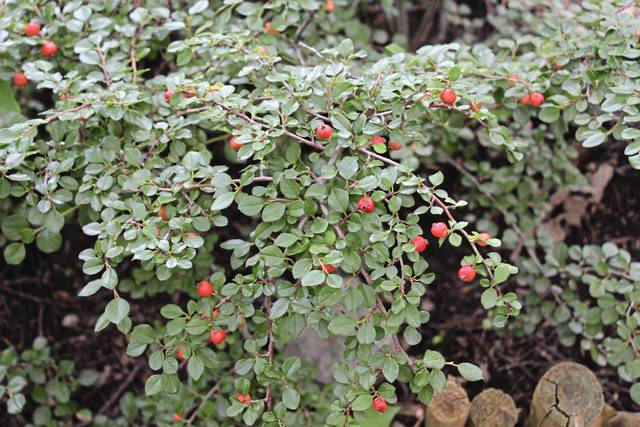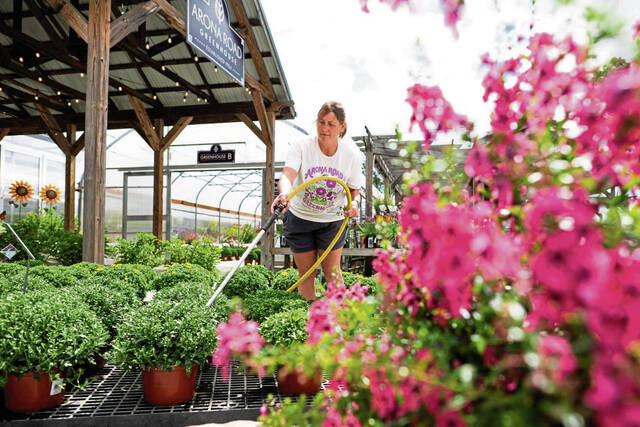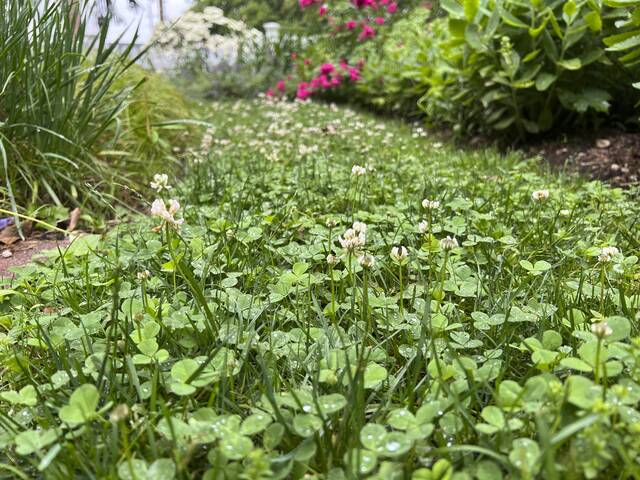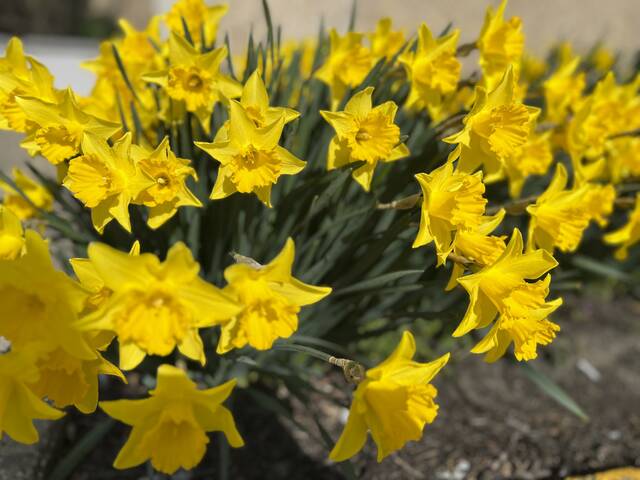While deer-browsing habits are always more aggressive in the winter, this winter and early spring seem to be especially bad. I’ve been hearing from gardeners across the region about how the deer have nibbled their foundation plantings to the nub.
If deer are problematic in your neighborhood and you’ve had a similar experience this winter, here are a few things you can do next fall to avoid the same problem again.
In future years, it’s always a good idea to cover your shrubs each autumn and winter with black plastic bird/deer netting. This fine mesh netting is almost impossible to see from just a few feet away. You don’t have to erect a large fence or attach the netting to posts; simply drape the netting over the shrub and make sure it covers it completely. I use good old-fashioned clothespins to hold it in place on the back side of the plant, where no one can see them. I don’t cover all of my shrubs, but I do cover the ones the deer are fond of.
Another technique is to spray your shrubs with a commercial deer repellent every three weeks throughout the fall, winter and early spring. There are many different commercial deer repellents on the market. While you may scoff at the cost of the more expensive brands, know that replacing all your shrubs is far more expensive than a few gallons of deer spray. Switching brands throughout the winter does help some gardeners limit deer damage even further. If the deer clearly have a feeding habit and pattern established at your home, you’ll have to work hard to break them of the habit by being religious about protecting your plants and spraying them regularly.
And, what might be the most successful way to limit deer damage is to replace all the shrubs they favor with ones they don’t.
While I would never say that a plant is 100% deer proof, there are several excellent evergreen shrubs for foundation plantings that are highly deer resistant.
Here are some of my favorites:
Boxwoods (Buxus species): There are many different species and cultivars of boxwoods, all of which have excellent deer resistance. Yes, occasionally a young deer takes a nibble of the boxwoods across the front of our home, but the feeding never extends beyond a little taste. Boxwoods do, however, have some other issues that can affect their health. The first is a small insect called the boxwood leafminer and the second is boxwood blight. Still, if deer are your main nemesis, boxwoods are an excellent choice.
Andromeda (Pieris japonica): Andromeda shrubs are lovely additions to the landscape, and they’re a great choice for deer-plagued gardens. The soft sprays of tiny white bell-shaped flowers in the spring are fragrant and long lasting. Like all of the other shrubs on this list, the foliage is evergreen, making it a great choice for foundation plantings.
Cotoneaster (Cotoneaster species): There are many different species and varieties of this plant that are commonly used in landscape plantings. Low-growing varieties make excellent shrubby ground covers. They’re very winter hardy and green year-round. Tiny white flowers appear in the spring, followed by red berries that attract berry-eating birds.
Bird’s nest spruce (Picea abies ‘Nidiformis’): This dwarf conifer has a natural rounded shape and a beautiful form. It’s very slow growing, reaching just 3 to 5 feet tall and wide some 10 years after planting. This shrub works great under windows, along driveways or in any sunny area. They’re low care, but like other evergreens, bird’s nest spruces should be fertilized every year or two with an acid-specific granular fertilizer.
Junipers (Juniper species): Another genus of plants with many varieties to choose from, junipers are prized by gardeners for their resilience and deer resistance. Low-growing varieties are excellent for covering slopes, while tall, upright selections are ideal for plantings at the corner of your home. Species that are more rounded are best suited to foundation plantings and gardens. Softer-needled species aren’t the best bet for gardens where deer pressure is high; for those gardens, choose juniper varieties with sharp, hard needles instead.
Mugo pine (Pinus mugo): Mugo pines have been popular landscape plants for a long time. Their low growth habit, coupled with their long needles and classic “pine” appearance, make them a favorite of many gardeners. The straight species is relatively slow growing and tops out at about 4 to 5 feet, but dwarf varieties stay a compact 2 to 3 feet, even without pruning. Mugo pines are very winter hardy and easy to care for.








